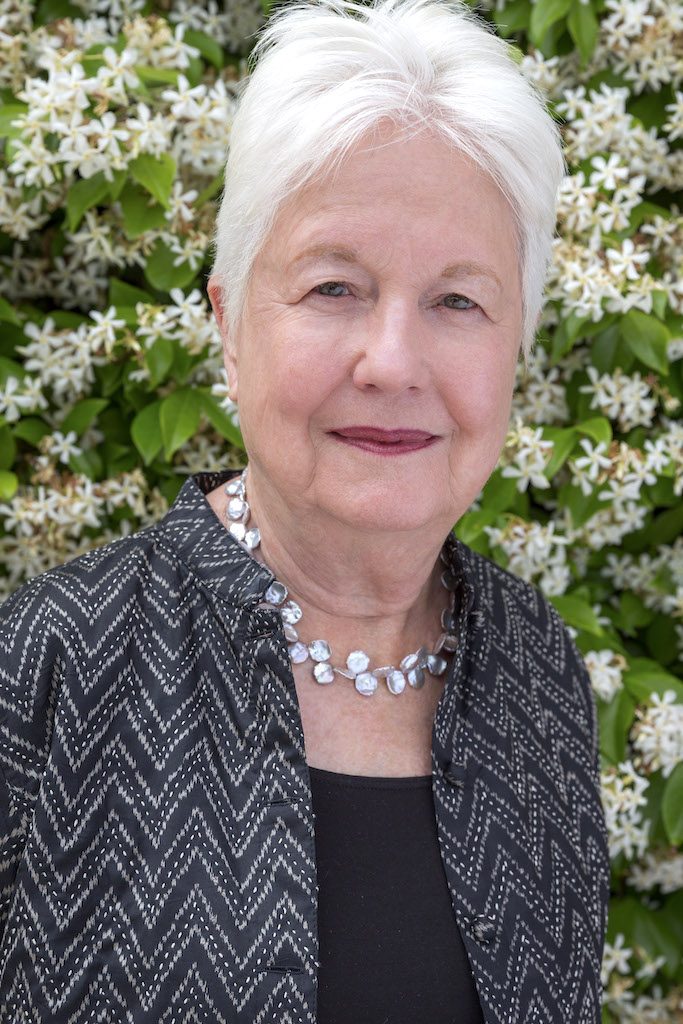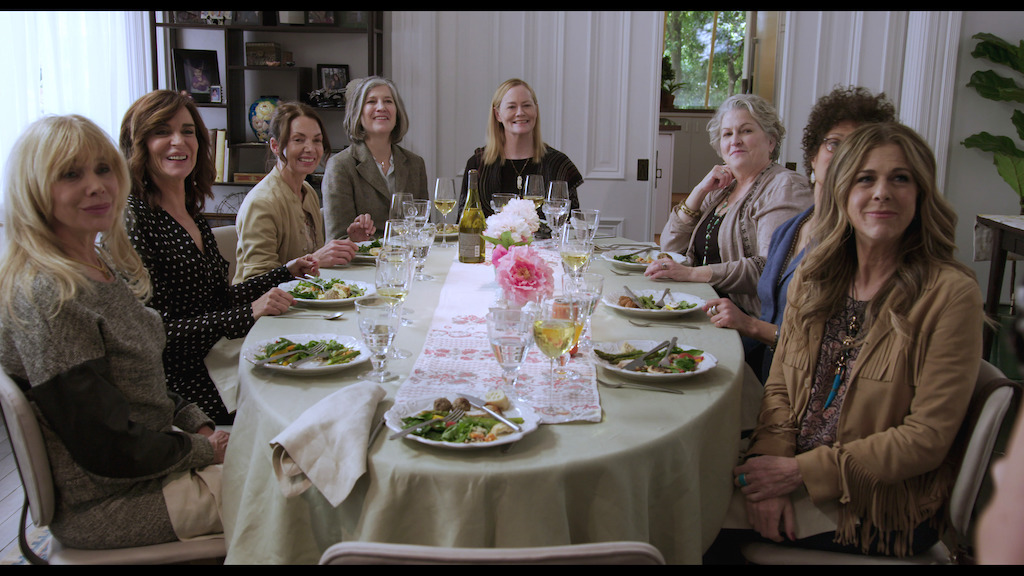“I had a story I wanted to tell,” said Eleanor Coppola, filmmaker and wife of Francis Ford Coppola. “Some of it was a little bit personal, and I didn’t want to make a documentary out of it, so I made a fiction piece.”
Prior to her fiction features Paris Can Wait and Love Is Love Is Love, Eleanor made documentaries such as Hearts of Darkness: A Filmmaker’s Apocalypse, A Visit to China’s Miao Country, and Making of ‘The Virgin Suicides’ about her daughter Sofia’s film.
“It was fun making Love Is Love Is Love because you can exaggerate and it didn’t have to be like a documentary, where you’re telling the truth as much as it can. I just thought it was a fun way to work, so that’s what I’ve been doing these days. I take a kernel of something that really happened, and turn it into a fiction piece.”
In 2016’s Paris Can Wait, Diane Lane and Alec Baldwin star in a film about the wife of a successful movie producer as they take a trip through France. In her latest film, Love Is Love Is Love, Eleanor weaves three love stories together – Two For Dinner, Sailing Lesson, and Late Lunch.

Eleanor Coppola. Photo by Gundolf Pfotenhauer
By making these kernels into fiction, she’s able to “disguise these incidents,” but also “tell richer, fuller, more interesting stories. Fiction is usually more interesting than the real thing.”
Writing Love Is Love Is Love
Rosanna Arquette, Kathy Baker, Maya Kazan, Chris Messina, Cybill Shepherd, Joanne Whalley, and Rita Wilson star in his latest film. As for the idea kernel, it came from an interview she did with an actor in Canada.
The interviewee was “dating his wife on Saturday nights over Zoom,” she said (which was particularly interesting as this was before COVID). “I just thought that was such an intriguing idea, so I made it into the first story.”
Eleanor actually made the stories as individual shorts, as she wasn’t sure if she could release a full feature at the time. “But then they came together, as what I felt like a related piece. The pieces had this common theme of love, commitment, loyalty, and long relationships. They seemed to fit together as one unit.”
Logistically, it was less complicated and more profitable to release a feature rather than three shorts.
Writing Personal Stories
Throughout Eleanor’s career, she’s often told personal stories in a public manner, be that through documentaries, features, or her book Notes on a Life from 2010.
“I don’t write in a regular fashion,” she said, “but I do often write journal entries. I go back through them and there’s something that sparks my interest that I can turn into another piece. But I think the source is being observant, which comes from my documentary nature.”
“I’m also not a natural fiction director, because I’m much more interested in the observation. It would be easy to let my actors run wild, because I’m just watching them do it,” she joked. “I don’t have a director’s instinct, but I am interested in observing.”
That said, she has a way to offset this natural inclination that could cause a problem on set. “I gather really talented people to offset this, and I have the understanding that they know how to do their work better than I do.”
The Coppola Brain Trust
Eleanor’s husband famously has a “brain trust” with the “movie brats” George Lucas, Brian De Palma, Steven Spielberg, and Martin Scorsese in terms of giving each other advice.
Her own inner circle works like this: she comes out with the outline of the story she wants to tell, then she joins forces with another writer such as Karen Leigh Hopkins (Stepmom, Because I Said So) and they collaborated on the piece. “She brings the levity. She has more jokey dialogue and lighter ideas, so we go back and forth.”
“That’s the collaborative process of creating the first draft of the script.” Logistically, the writers email drafts back and forth, then they talk on the phone, and meet in person a few times (they live a few hours apart). “It’s a mix of remote and up close work.”

Kathy Baker and Marshall Bell in Sailing Lesson. Photo By Kalman Muller
“I think there’s a large underserved audience of people that are fifty plus, who don’t see their lives reflected on the screen. I’d say, particularly, women. I don’t think my films like Love Is Love Is Love would be made by a man. There’s no male heroes and it’s from a female perspective. I think there could be more of that on the screen.”
Female Perspectives
Eleanor is a big fan of Jane Campion (The Piano, The Power of the Dog). “It’s not female centric so much, but she does really deal with, or, the way she makes films is from a female sensibility. I’d have to say that about my daughter Sofia too.”
Sofia Coppola has writing credits for The Virgin Suicides, Lost in Translation, Marie Antoinette, The Bling Ring, and The Beguiled (2017). “There’s a kind of way they express themselves that wouldn’t be done by a man.”
At age 85, Eleanor would encourage creatives of all ages to continue their creative pursuits. “I think there was a courage that came over me in my 70s where I thought, what’s the worst that could happen? A big failure would change my life. Success wouldn’t start my career.”
“I think it’s different when you’re older, but I had to raise the money for my first feature. That took six years. The real message is: don’t give up. When one door closes in your face, look for another door and just keep diligently trying to further your vision.”
This interview has been condensed. Listen to the full audio version here.

